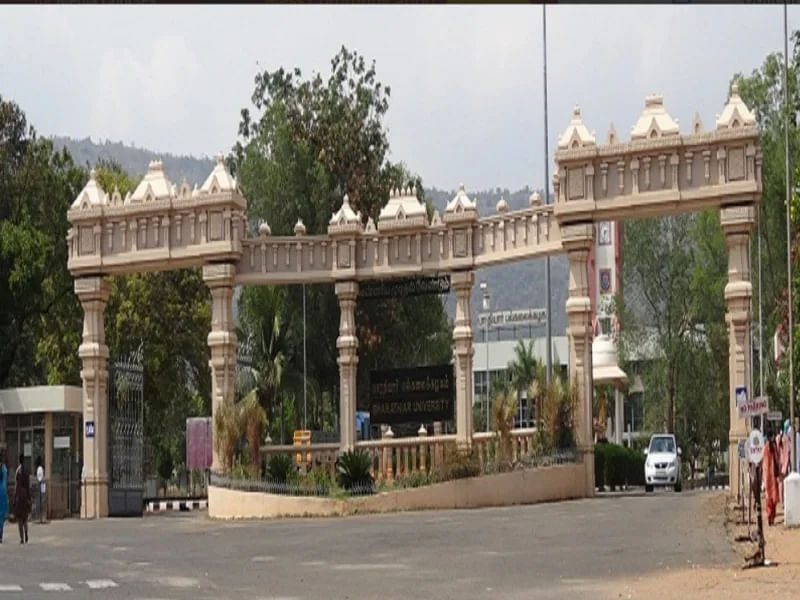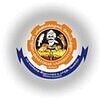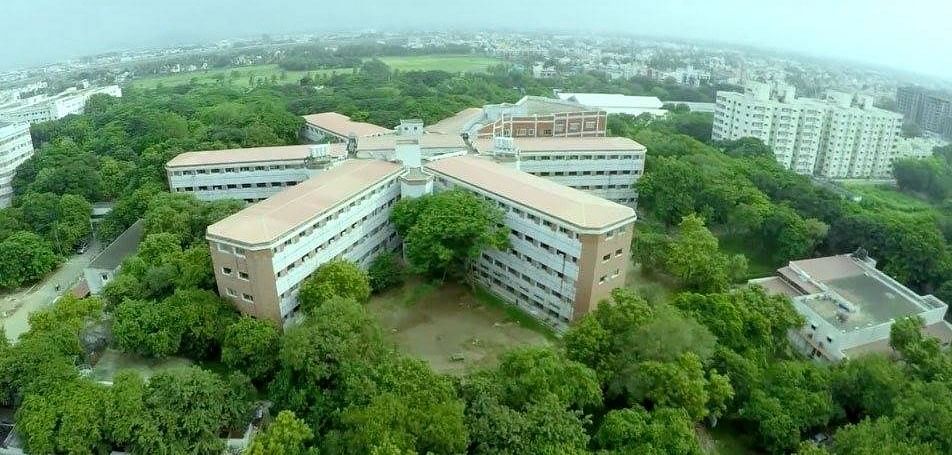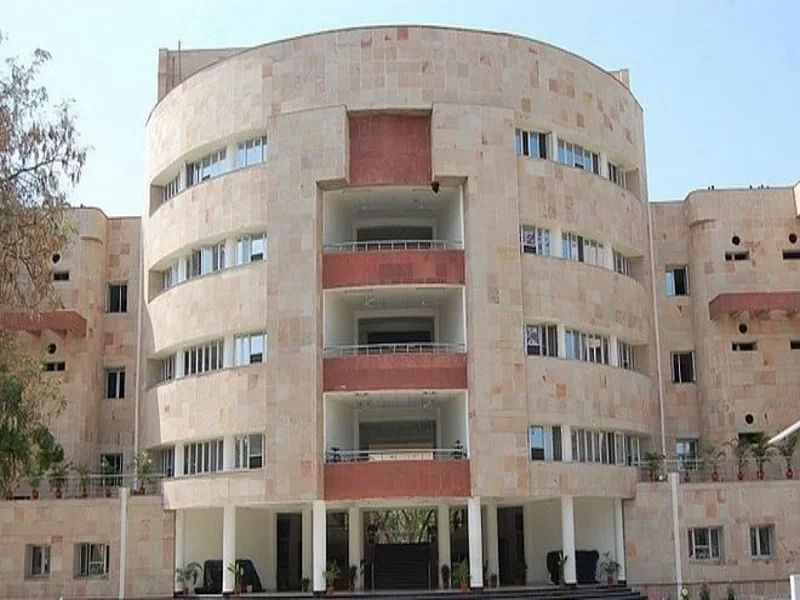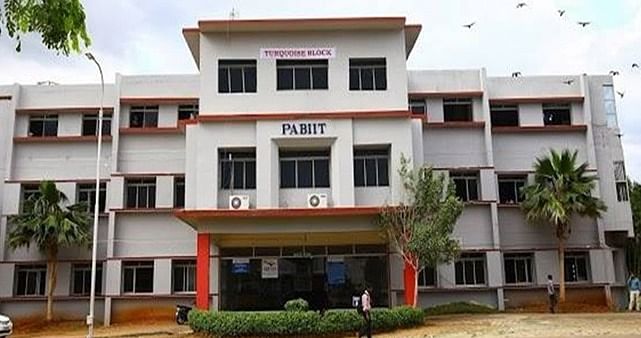MBA Systems Management Syllabus and Subjects

MBA System Management syllabus provides a comprehensive understanding of a spectrum of management concepts and executive processes. MBA in System Management subjects delves deeply into the intricate mechanics that drive enterprise operations, encompassing essential domains such as network administration, database systems, software, and hardware.
Equipping students with versatile skills essential for excelling in business environments, an MBA in System Management course empowers graduates to spearhead complex IT projects and operational processes. This proficiency bridges the technology-business gap, enhancing job scope and enabling strategic navigation through systemic and digital transformations.
Table of Contents
Semester-Wise MBA in System Management Syllabus
MBA in System Management syllabus offers a holistic view of business and technology integration, preparing candidates to excel in the dynamic landscape of IT-driven management. Over a span of two years divided into four semesters, students delve into core disciplines like Business Communication, Data Analytics, and Strategic Management. Complementing the core are specialised elective courses including Cloud Computing, Cybersecurity, and E-commerce, providing students with a tailored skill set. Detailed in the tables below is a general outline of the semester-wise MBA System Management syllabus offered by various institutions in India.
First-Year MBA System Management Syllabus
|
Semester Ⅰ |
Semester Ⅱ |
|
Management and Organisational Behaviour |
Business Communication |
|
Managerial Economics |
Human Resource Management |
|
Marketing Management |
Financial Management |
|
Accounting and Finance for Managers |
Productions and Operations Management |
|
Quantitative Techniques for Management |
Project Management |
|
Information System for Managers |
Research Methodology |
Second-Year MBA in System Management Syllabus
|
Semester Ⅲ |
Semester Ⅳ |
|
Business Law |
Business Environment and Ethics |
|
Database Management System |
Information Security Systems, Control and Audit |
|
E-Commerce |
Software Engineering and Management |
|
Strategic Management |
Enterprise Resource Planning |
|
Managing Operation and Supply Chain |
IT Management |
|
Big Data and Business Analytics |
Project |
Practical Subjects for MBA in Systems Management
Some of the practical subjects included within the MBA in System Management syllabus are
- IT Project Management
- Java and Web Design
- Enterprise Architecture Implementation
- Data Analytics and Visualization
- Cybersecurity Strategy and Implementation
- E-Business Strategy Development
- Case Studies in Technology Innovation
- Cloud Computing and IoT Applications
- Real-world IT Governance Scenarios
MBA in System Management Subjects 2023
MBA in System Management subjects are divided into core and elective subjects, with core courses covering topics like Industry Dynamics, Financial Strategies, Organisational Behaviour, and more. Electives delve into System Analysis, ERP, Project Management, Data Warehousing, E-commerce, etc. These subjects provide a versatile skill set at the business-technology intersection.
Core MBA in System Management Subjects
The core courses in the MBA System Management subjects providing crucial foundational knowledge are listed below
- Business Communication
- Organizational Behaviour
- Managerial Economics
- Financial Management
- Marketing Management
- Human Resource Management
- Operations Management
- Information Systems Management
- Data Analytics and Decision Making
- Strategic Management
Elective MBA in System Management Subjects
MBA in System Management subjects offer a range of elective courses that may vary among universities but usually include the following
- Enterprise Resource Planning (ERP)
- Business Intelligence and Analytics
- IT Project Management
- E-commerce and Digital Business
- Cloud Computing
- Cybersecurity and Risk Management
- Data Mining and Big Data Analytics
- Software Development Management
- Knowledge Management
- IT Governance and Compliance
MBA System Management Subjects in Detail
The MBA in System Management subjects combine theory and practical applications. The core courses establish a solid foundation, while elective courses focus on specialised areas. Detailed in the table below are the topics covered by some of the subjects:
|
Subjects |
Topics Covered |
|
Database Management System |
Data Models, Database Language, Relational Models, Integrity Constraints, Object Oriented Data Models, and Database System Architectures. |
|
E-Commerce |
Telecommunication Networks, The Internet and the World Wide Web, Electronic Payment Systems, E-Security, Web-based Business |
|
Enterprise Resource Planning(ERP) |
ERP, Business Modelling for ERP, Competitive Advantage ERP domain MPGPRO, Commercial ERP Package. |
|
Data Mining and Business Analytics |
Data Processing, Mining Association Rules in Large Databases, Classification and Prediction, Cluster Analysis, Business Intelligence Tools and Applications |
|
Information System Management |
System Analysis, Software Development, Project Management, Cybersecurity, Data Management, Technology-driven Business Strategies |
|
Strategy Management |
Corporate Strategic Planning, Environmental Analysis and internal Analysis of Firm, Strategy formulation, Tools of Strategy Planning and Evaluation, Strategy Implement and Control |
|
Software Project Management |
Estimating Duration, Resource Requirements and Cost, Recruiting Organizing, and Managing the Project Team, Introduction to the Adaptive Project Framework, Organisational Considerations, Project Portfolio Management, Project Support Office |
College-Wise MBA System Management Syllabus
The MBA in System Management syllabus in India varies across institutions, reflecting distinct pedagogical aims. India is home to some of the MBA institutions offering MBA in System Management course, below is a concise breakdown of syllabus structures across colleges, showcasing subject diversity and adaptation to the dynamic real estate landscape.
NMIMS MBA System Management Syllabus
NMIMS's MBA in System Management subjects equip graduates to strategically evaluate business decisions, leverage emerging technologies, manage IT investments, adapt to changing tech landscapes, and drive business process reengineering. The semester-wise MBA in System Management syllabus is listed in the table below
|
Semester Ⅰ |
Semester Ⅱ |
|
Management Theory and Practice |
Business Communication |
|
Information System for Managers |
Human Resource Management |
|
Organisational Behaviour |
Business Law |
|
Marketing Management |
Strategic Management |
|
Business Economics |
Operations Management |
|
Financial Accounting and Analysis |
Decision Science |
|
Semester Ⅲ |
Semester Ⅳ |
|
Big Data and Business Analytics |
System Security and Risk Management |
|
E-Commerce |
Managing Business Process Outsourcing |
|
IT Project Management |
Digital Payments |
|
Emerging Technologies |
Business Ethics, Governance and Risk |
|
IT Infrastructure Management |
Research Methodology |
|
Cloud Computing |
Project |
BML Munjal University MBA System Management Syllabus
BML Munjal University's MBA in System Management subjects offers a balanced curriculum. Core courses cover fundamental areas like Industry Dynamics, Accounting, and Marketing. Skill courses develop practical abilities such as communication and problem-solving, while perspective courses broaden insights. Listed below is the semester-wise syllabus breakdown of the university
|
Semester Ⅰ |
Semester Ⅱ |
|
Communication and Presentation Skills |
Synthesising and Analysing Data |
|
Managing and Developing People |
Marketing and Consumer Behaviour |
|
Business Statistics |
Sourcing and Managing Talent |
|
Micro-Economics |
Macro Economics and Policy |
|
Perspectives on World Civilizations |
Financial Reporting and Analysis |
|
Operation Research |
|
Semester Ⅲ |
Semester Ⅳ |
|
Organizing Structure and Design |
Strategic Management |
|
Managing Operation and Supply Chain |
Bringing Ideas to Market |
|
Marketing of Product and Services |
Managing Financial Resources |
|
Costing Products and Services |
Managing Stakeholder and Legal Processes |
|
Etiquette and the Art of Conversations |
Project Management |
|
Critical Reasoning and Systems Thinking |
Ethics and Citizenship |
MBA System Management Project Topics
The MBA System Management syllabus includes a series of focused projects that allow students to apply theoretical concepts to practical scenarios. Listed below are project topics for students to refer to
- Analyse and redesign existing business processes within an organisation.
- Evaluate the supply chain processes of a company.
- Develop a plan to implement a quality management system (e.g., Six Sigma, Lean) to enhance product or service quality, streamline processes, and reduce defects.
- Design an automated workflow system to improve accuracy, save time, and enhance data management.
- Design and prototype an e-commerce platform tailored to a specific industry, integrating user experience design, secure payment gateways, and inventory management.
MBA in System Management Course Structure
The structure of the MBA in System Management syllabus spans two years and is designed to offer a balanced and enriching learning experience. Listed below is an outline of its structural components:
- Two years
- Four Semesters
- Core and Elective Subjects
- Practicals
- Research Work
- Dissertation/Capstone Project
MBA System Management Teaching Methodology and Techniques
The MBA in System Management syllabus uses a variety of instructional approaches to give students real-world experience, critical thinking abilities, and business knowledge necessary for success in the evolving business system and information domain. These methods consist of
- Case Studies
- Guest Lectures
- Group Projects
- Workshops
- Internships
- Research Projects
MBA System Management Reference Books
Reference books for MBA in Systems Management subjects help provide valuable insights into the course structure and core concepts for the program. Listed in the table below are a few books to refer to:
|
Subjects |
Books |
Authors |
|
Enterprise Resource Planning |
Enterprise Resource System: Systems, Lifecycle, Electronic Commerce, Risk |
Daniel E O’Leary |
|
Data Mining |
Data Warehousing, Data Mining & OLAP |
Alex Berson and Stephen J.Smith |
|
Strategic Management |
Exploring Corporate Strategy: Text And Cases |
Gerry Jhonson and Keven Scholes |
|
E-Commerce |
Electronic Commerce - A Manager's Guide |
Ravi Kalakota and Andrew B. Whinston |
Top MBA Systems Management Colleges
Top Management Entrance Exams
MBA Systems Management Fee Structure
FAQs on MBA Systems Management Syllabus and Subjects
Q: What is the syllabus for the MBA System Management program?
Q: What are MBA System Management subjects?
Q: Are there opportunities for specialization within the MBA System Management syllabus?
Q: What elective courses are offered in the MBA System Management syllabus?
Q: What is the scope of MBA System Management?


